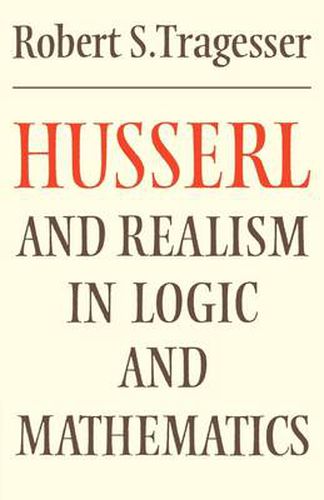Readings Newsletter
Become a Readings Member to make your shopping experience even easier.
Sign in or sign up for free!
You’re not far away from qualifying for FREE standard shipping within Australia
You’ve qualified for FREE standard shipping within Australia
The cart is loading…






Mathematics and logic present crucial cases in deciding whether the world is of our making or whether some form of realism is true. Edmund Husserl, who was initially a mathematician, discusses this general question extensively, but although his views influenced the Dutch intuitionists and were taken very seriously by Goedel, they have not been widely appreciated among analytical philosophers. In this book Robert Tragesser sets out to determine the conditions under which a realist ontology of mathematics and logic might be justified, taking as his starting point Husserl’s treatment of these metaphysical problems. He does not aim primarily at an exposition of Husserl’s phenomenology, although many of the central claims of phenomenology are clarified here. Rather he exploits its ideas and methods to show how they can contribute to answering Michael Dummet’s question ‘Realism or Anti-Realism?’. In doing so he makes a challenging and provocative contribution to the debate.
$9.00 standard shipping within Australia
FREE standard shipping within Australia for orders over $100.00
Express & International shipping calculated at checkout
Mathematics and logic present crucial cases in deciding whether the world is of our making or whether some form of realism is true. Edmund Husserl, who was initially a mathematician, discusses this general question extensively, but although his views influenced the Dutch intuitionists and were taken very seriously by Goedel, they have not been widely appreciated among analytical philosophers. In this book Robert Tragesser sets out to determine the conditions under which a realist ontology of mathematics and logic might be justified, taking as his starting point Husserl’s treatment of these metaphysical problems. He does not aim primarily at an exposition of Husserl’s phenomenology, although many of the central claims of phenomenology are clarified here. Rather he exploits its ideas and methods to show how they can contribute to answering Michael Dummet’s question ‘Realism or Anti-Realism?’. In doing so he makes a challenging and provocative contribution to the debate.